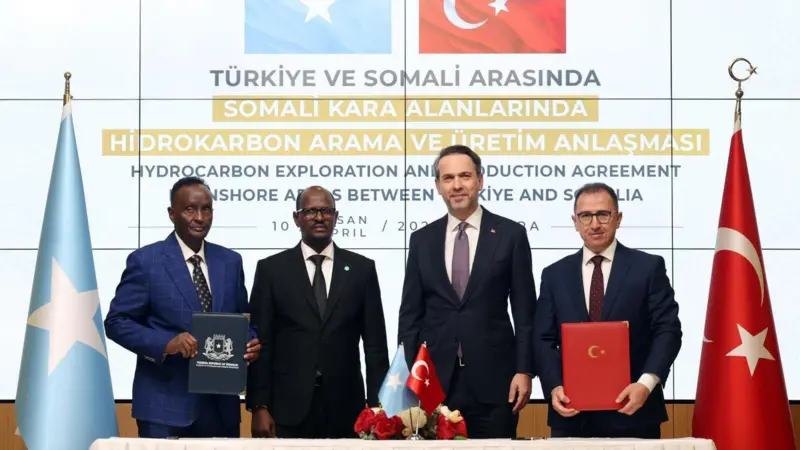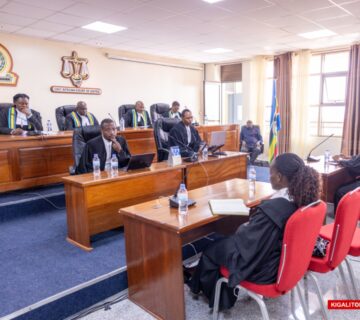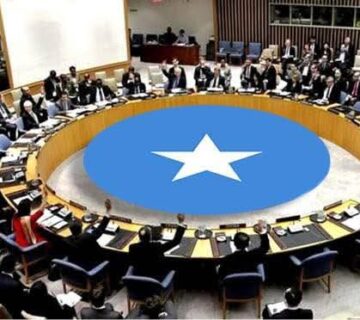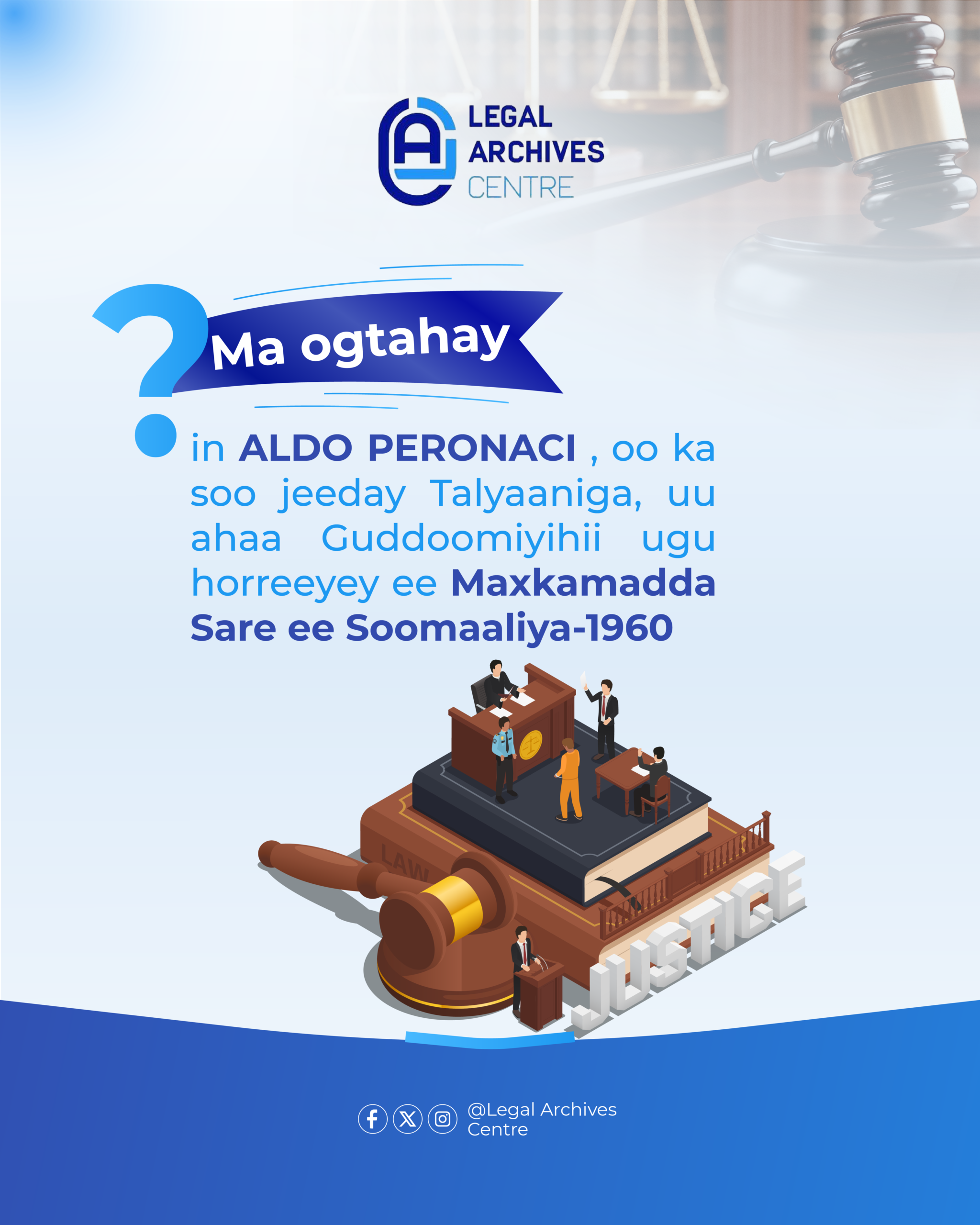Summary Executive
This review examines selected clauses of the petroleum cooperation agreement between the Federal Government of Somalia and the Republic of Turkey, signed in Istanbul on 7 March 2024. The articles chosen for analysis were identified as containing provisions with significant fiscal, legal, and sovereignty implications for Somalia, particularly in relation to ownership rights, taxation under the Double Taxation Agreement (DTA), fiscal stability, investor protections, and dispute resolution mechanisms. While the agreement aims to foster petroleum sector development through international partnership, several clauses appear heavily investor-oriented, potentially constraining Somalia’s future policy flexibility and limiting its economic benefits from resource extraction. The following analysis examines these issues with reference to international best practices, Somalia’s constitutional framework, and its national legal instruments, including the Rules of Procedure of the 11th Parliament.
Misrepresentation in Parliamentary Approval
On 21 February 2024, Somalia’s executive and legislative branches approved, on the same day, an agreement titled the Defence and Economic Cooperation Agreement. The Council of Ministers endorsed the deal, followed almost immediately by the Federal Parliament’s approval, without providing clarity on the full contents of the agreement or its detailed provisions. According to state television, 213 Members of Parliament voted in favour, while 3 opposed.[1] Notably, the President personally attended the parliamentary session and urged members to approve the agreement, resulting in its passage without adherence to the procedural requirements set out in the 2012 Provisional Constitution and the Parliament’s Rules of Procedure.
There is significant confusion surrounding the matter. The Ministry of Energy and Natural Resources of Türkiye and Somalia’s Ministry of Petroleum and Mineral Resources concluded an agreement formally titled “The Government of the Republic of Türkiye and the Federal Government of the Federal Republic of Somalia in the Field of Hydrocarbons,” which was signed in Istanbul on 7 March 2024 in Turkish. This date marks the formal execution and international signing of the hydrocarbon agreement.
However, when the matter was presented to the Somali Parliament, it was brought forward by the Ministry of Defence together with the President, and was framed as a Defence Agreement rather than a hydrocarbon agreement. As a result, members of parliament were not made aware of the specific nature and content of the hydrocarbon deal, creating a clear misrepresentation between what was signed internationally and what was presented domestically for approval.
Key Clauses for Legal Review and Discussion
Participating Interest: Under article 4 clause 4 statesthat the Turkish Designated Entity shall have the right to determine the percentage of its Participating Interest under the Production Sharing Agreement for each Contract Area that the Turkish Designated Entity deems appropriate.
This clause grants the Turkish Designated Entity sole discretion to set its ownership share (Participating Interest) in each petroleum contract area under the Production Sharing Agreement, thereby allowing it to determine, without government approval, the proportion of project costs it will bear and the corresponding share of profits it will receive. This also gives the Turkish side a lot of flexibility and control, because they could take a high share in lucrative blocks and a lower share in riskier ones.
In most PSAs, Participating Interests are negotiated between the government and the contractor. Here, the clause lets the Turkish company unilaterally decide which is a very investor-friendly (and government-weak) provision.
Ownership Rights: Under article 4 clause 4 section 6 of the agreement states that the Federal Government of Somalia is entitled to receive, in cash or in kind (as petroleum), up to five percent (5%) of the petroleum extracted from the designated agreement area. Petroleum that is reinjected into the reservoir or utilized for petroleum operations at the production site shall be excluded from the calculation of this entitlement.
International Practice & Comparative Standards
In most Production Sharing Agreements (PSAs) and similar petroleum contracts in Africa and globally, the state’s share is typically much higher than 5% when considering all forms of revenue including royalties, profit oil, taxes, and bonuses.
- A 5% entitlement could be reasonable only if it is an additional ownership right on top of other benefits such as profit oil sharing, corporate income tax, signature bonuses, or social responsibility investments.
- If 5% is the only revenue Somalia would get, it is extremely low and may be considered unfavorable compared to regional norms.
Under Somalia’s Provisional Constitution, natural resources are a shared asset between the federal government and federal member states, and agreements must ensure equitable benefit to the people. Signing away such a small share could raise questions of constitutionality, transparency, and public interest compliance.
Under article 5 of the agreements states that all taxes and duties related to the Project shall be levied in accordance with the applicable laws and regulations of both Parties, taking into account this Agreement, the Federal Government Agreement, and the Agreement between the Government of the Republic of Turkey and the Government of the Federal Republic of Somalia for the Avoidance of Double Taxation with respect to income tax, signed on 3 June 2016.
A Double Taxation Agreement between Somalia and Turkey (signed 3 June 2016) is designed to avoid the same income being taxed twice once in the country where it is earned (source country) and again in the country where the investor or company is based (residence country). The DTA does not stop Somalia from taxing petroleum. It only sets rules for how that tax is applied so that Turkey either: exempts that income from further taxation in Turkey, or gives a credit for the tax already paid in Somalia.
Best Practices for Taxing Petroleum Under the Somalia-Turkey DTA
In order to safeguard national fiscal interests while complying with the obligations arising under the Double Taxation Agreement (DTA) between the Federal Republic of Somalia and the Republic of Turkey, the following measures are recommended:
(a) Determination of Source of Petroleum Income
Pursuant to international taxation principles and the provisions of the DTA, income derived from the extraction of petroleum within Somali territory constitutes Somalia-source income. As the source state, Somalia retains the primary taxing right over such income before the proceeds are repatriated to the investor’s home jurisdiction.
Legal Recommendation: Incorporate explicit “Petroleum Income Tax” provisions in national legislation to clearly define the taxable base, the method of valuation, and the applicable tax rates, thereby eliminating interpretive uncertainty.
(b) Application of the Ring-Fencing Principle
Ring-fencing is a recognized fiscal mechanism in extractive industries whereby each petroleum project is treated as a distinct fiscal unit. This prevents a contractor from offsetting losses or costs incurred in unrelated operations against profits earned from petroleum extraction within Somalia.
Legal Recommendation: Include ring-fencing clauses in both the Petroleum Law and Production Sharing Agreements (PSAs) to preserve the integrity of Somalia’s tax base.
(c) Imposition of Resource-Specific Fiscal Instruments
The existence of a DTA does not extinguish Somalia’s right to levy sector-specific taxes applicable to extractive industries. These may include: Petroleum Resource Rent Tax (PRRT) – a tax on super-profits beyond a specified rate of return; Production Royalties – levied on gross production prior to cost recovery; Corporate Income Tax – applied to net taxable income after allowable deductions; and Withholding Taxes – applicable to certain cross-border payments (e.g., technical service fees, dividends).
Under the DTA framework, such taxes remain payable in Somalia, with Turkey obliged to grant relief from double taxation through either exemption or credit mechanisms.
(d) Consideration of Tax Stability Clauses
Many petroleum contracts contain fiscal stability clauses designed to freeze or stabilize the applicable tax regime for the duration of the agreement. When these clauses incorporate references to the DTA, they may effectively limit Somalia’s ability to amend tax rates, introduce new levies, or otherwise alter the fiscal terms.
Legal Caution: Stability clauses should be narrowly drafted to protect legitimate investor expectations without undermining the State’s sovereign right to enact future tax reforms in the public interest.
Legal Change Compensation: Under 8 clauses 8 sub-section 6 states that if a change in law negatively impacts, delays, or obstructs the implementation of the Project, diminishes its value, affects any rights or protections provided under this Agreement or related agreements, or results in increased expenses for the Named Turkish Company and/or the Contractor, whether directly or indirectly, the Federal Government of Somalia shall reimburse the Named Turkish Company and/or the Contractor for the resulting costs.
This reimbursement shall be made in the form of petroleum, taken from the Government’s share of Profit Oil and Profit Gas, and must be completed within one year from the effective date of the legal change.
Investor Status: Under article 9 of the agreement between Somalia and Turkey states that the Turkish company and/or the contractor will be treated as foreign investors under international law. Their investments in Somalia are protected by the 1966 ICSID Convention[2] (the World Bank’s international arbitration system). If a dispute arises between them and the Somali Government about the investment, they can take the case to international arbitration rather than relying only on Somali courts.
Final Arbitration: Article 10 of the agreement any dispute that is not resolved within ninety (90) days from the date on which consultations and/or negotiations commence may be referred by either party to final arbitration in accordance with the current arbitration rules of the United Nations Commission on International Trade Law (UNCITRAL).
Term and Automatic Extension: Under article 12 states that the Agreement will be valid for an initial period of five (5) years and will automatically be extended for additional terms of three (3) years each, unless one Party formally notifies the other, via diplomatic channels, of its decision to end the Agreement no later than six (6) months before the end of the current term.
The Agreement, signed in Istanbul on 7 March 2024 in Turkish, Somali, and English (with the English text prevailing in case of interpretation disputes), entered into force on the date of signature. It will remain in effect for an initial term of five (5) years, ending on 6 March 2029. Unless either Party provides written notice through diplomatic channels of its intention to terminate the Agreement at least six (6) months before this date, the Agreement will automatically renew for successive three (3) year periods thereafter.
CONCLUSION
The reviewed provisions of the Somalia–Turkey petroleum agreement reveal a pattern of contractual terms that prioritize investor discretion and protection over balanced benefit-sharing and state sovereignty. Clauses granting unilateral control over participating interests, capping Somalia’s ownership entitlement at 5%, and embedding broad fiscal stability guarantees risk undermining the state’s ability to adapt its fiscal regime in the public interest. While the DTA with Turkey does not inherently prevent Somalia from taxing petroleum revenues, the combination of stability clauses and minimal guaranteed returns poses a challenge to securing equitable national revenue. Strengthening domestic petroleum laws, narrowing stability clauses, and ensuring transparent negotiation processes are essential to safeguarding Somalia’s resource sovereignty while maintaining investor confidence.
[1] VOA, ‘Golayaasha Soomaaliya oo ansixiyey heshiis lala galay Turkey’ (2024), available at https://www.voasomali.com/a/golayaasha-soomaaliya-oo-ansixiyey-heshiis-lala-galay-turkey/7496247.html.
[2] The 1966 ICSID Convention is short for the Convention on the Settlement of Investment Disputes between States and Nationals of Other States, adopted in 1965 and entered into force in 1966.






No comment